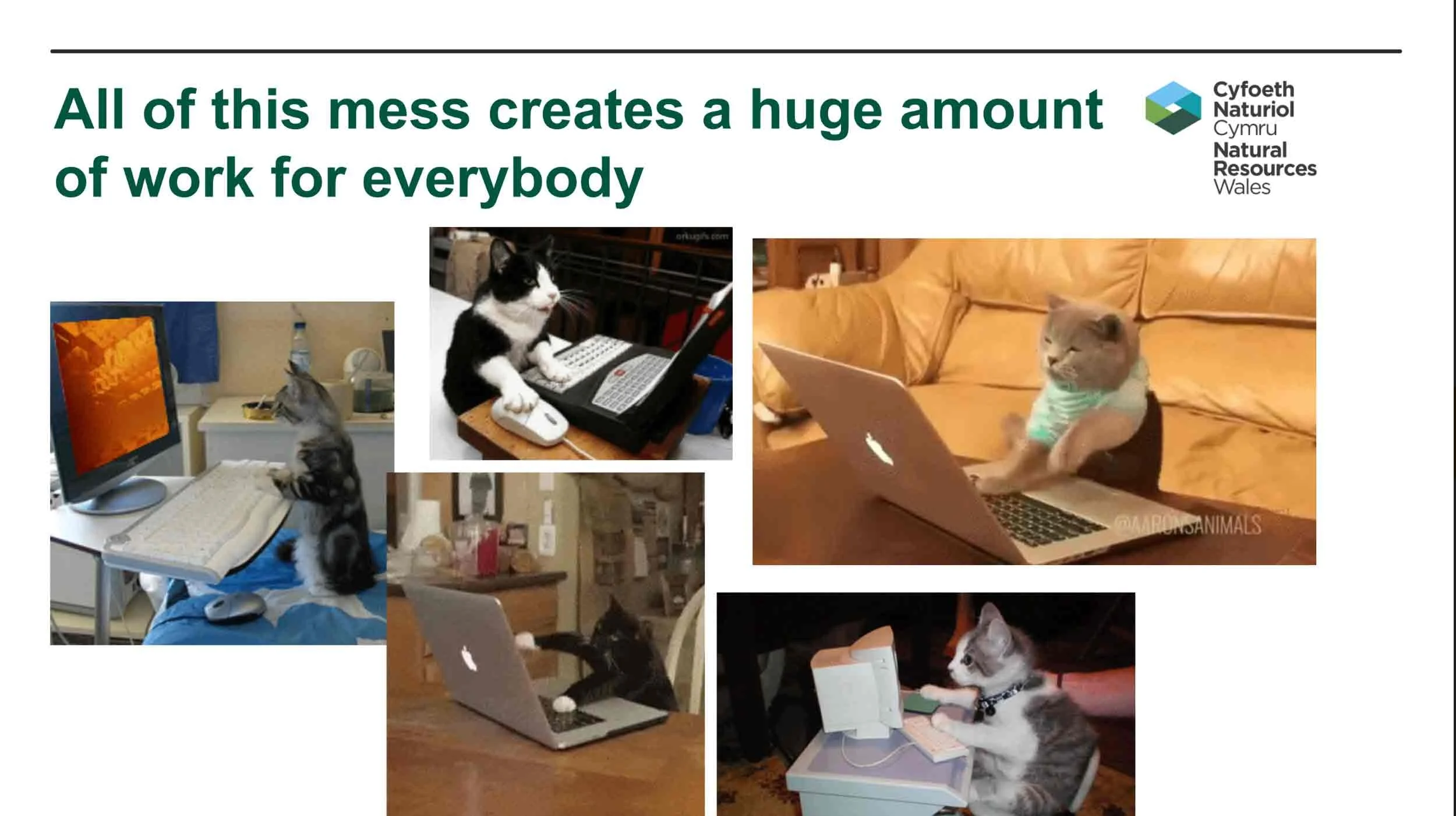Unlocking a better user experience on a budget
How Natural Resources Wales is simplifying permissions with a user-centred approach
If you live or work in Wales and want to use land owned by Natural Resources Wales (NRW) for anything from collecting firewood to organising running races in the woods, you must first find out if you’re allowed and then, if you are, you may need to get permission to use the land.
Before Lucinda, Laura, and Sam started working on this, users were confronted with unclear guidance, many forms, and an overabundance of information. This cost NRW staff a significant amount of time as they dealt with emails and phone calls from confused customers.
Working with a small budget, the team made sense of this complicated picture to make things easier for customers.
This story brings to life some of the principles of user-centred ways of working in the Digital Service Standards for Wales.
Confused cats struggling to use NRW website!
The team worked hard to:
Understand users and their needs - they really set about doing the hard work (internally) so users don’t have to. One of my favourite quotes from the video is “we shouldn’t publish everything we can”. The team made a real effort to produce the minimum content required for users to complete the job.
Working in a multi-disciplinary team - the digital team spent time establishing a strong rapport with the permissions team and administrators. This collaborative approach meant concerns and issues were addressed quickly. Adding Welsh translation into the team (using trio writing - see below for more info.) allowed them to also 👇
Design services in Welsh and English from the start
Iterate and improve frequently based on feedback. The team worked under the radar at first, building a prototype solution which they used to create a vision of what was possible. It also helped them to have better conversations with people about what good looks like and what needs to be changed.
Working in the open - by sharing their work here and elsewhere.
Use scalable technology - they used no-code options and gov.uk Verify and gov.uk Pay, which helped them to keep costs down.
They kept senior stakeholders on board by sharing details of the complexities and inconsistencies in the existing service. This helped them manage expectations and foster an understanding of the work required behind the scenes.
Watch the recording to discover their 9 Top Tips for tackling similar challenges!
(Natural Resources Wales shares how they're applying a user-centred approach to simplify the permissions service for people who want to use their land.)
This session was recorded at our Service Design in Practice monthly alumni community meet-up.
Past participants and sponsors meet to share experiences, collaborate to solve challenges, continue learning, network and practice tools and methods in a safe-to-fail environment.
Enormous thanks to Lucinda Pierce, Sam Evans and Laura Morris at Natural Resources Wales for generously sharing their story with the community and beyond.
References:
Digital Service Standards for Wales from the Centre for Digital Public Services
Was this valuable?
Stay in the loop, join our community and never miss another post!

